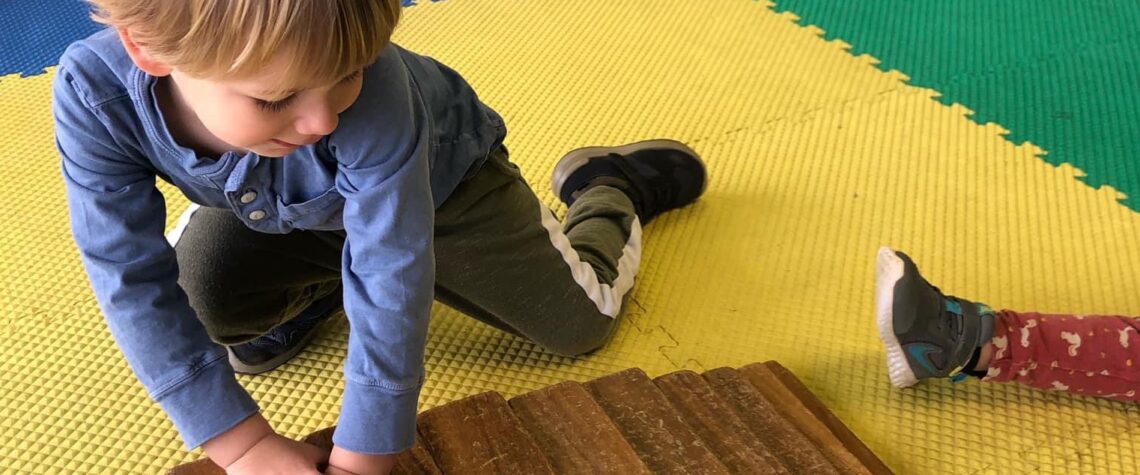Our philosophy at Brandywine Children’s House is based on Montessori principles.
What is the Montessori Method?
It is a spontaneous, expansive education system designated to afford the child freedom to move and learn in a prepared environment, which encourages self-confidence and self-development. The Montessori method seeks to apply the powers of the child’s absorbent mind through the sensitive periods of his or her childhood. This learning experience proceeds under the observation and guidance of specially trained Montessori teachers.
What is the prepared environment?
When children enter a Montessori school, they find themselves in a world that reflects in a miniature the larger world, which they someday will occupy. In the Montessori classroom, they are surrounded by a variety of sensorial learning materials, all carefully designed to appeal to them across a wide range of learning areas: language arts, practical life experiences, motor skill development, natural and physical sciences, mathematics, art, and music. These sensorial materials are designed to lead the child from the simple to the complex, from the concrete perception to the abstract perception. The materials are self-corrective, enabling the child to find the correct answer by himself or herself. This programmed learning environment and experience ensures learning, motivation, and success in future educational experiences.
What is the absorbent mind?
The child possesses unusual mental powers and sensitivity for absorbing learning from his or her environment that are unlike those of older children or adults, both in quality and capacity. Maria Montessori recognized that the young child absorbs almost all of his or her learning from the environment in which placed. Thus, the prepared environment becomes the learning base for earliest knowledge and skills of the very young.
What are the sensitive periods?
Dr. Montessori observed certain age periods, between ages two and six, when the child shows unusual interest in, and capacity to acquire, a particular skill. She called these the “sensitive periods.” Most of the basic skills—motor skills, language arts, practical life, natural and social sciences, mathematics, art, and music—are acquired by children in the two to six age group.
What has the child acquired after two or three years in the Montessori Method?
- An enthusiasm and joy for learning
- Fundamental skills in all areas of learning
- Independence and self-confidence
- Intellectual and creativity potential and accomplishment
- Appreciation of the importance of the environment
- An excellent preparation for later learning experiences
- A learning adventure that lasts a lifetime!

